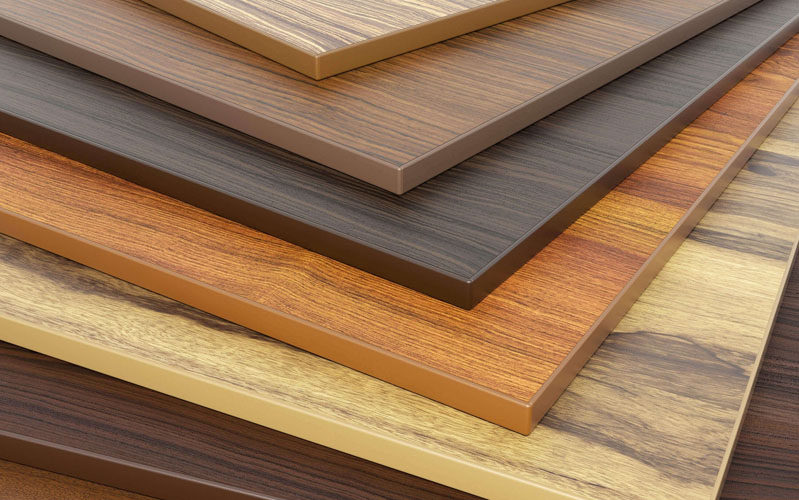A Brief Overview of the Indian Plywood Industry
The Indian plywood industry, with roots tracing back to the early 20th century, has evolved from its modest beginnings in Assam into a pivotal player in the nation’s construction and furniture sectors. Over the decades, it has transformed from a small-scale cottage industry to a robust, technologically advanced sector featuring major market players like Century Plyboards, Greenply Industries, and Kitply Industries. These giants have expanded their reach and product range, catering to both domestic and international demands.
Thanks to their abundant timber resources, centers like Assam, Kerala, and Gujarat have become renowned production hubs. Assam, in particular, is prized for its premium-quality timber. The industry has consistently innovated, introducing products ranging from waterproof and fire-resistant plywood to eco-friendly variants. However, it faces challenges such as raw material shortages and stiff competition from alternative materials. Despite these hurdles, the industry is poised for growth, propelled by India’s urbanization, infrastructure development, and the rising demand for quality construction and furniture materials. Concurrently, sustainability has become a central focus, with many manufacturers adopting eco-friendly sourcing and manufacturing practices.
The significance of plywood in India’s economy and construction sector
Plywood holds a pivotal role in India’s economy and construction sector, underpinning the nation’s rapid urban development and infrastructure growth. As a versatile and durable material, plywood has become a staple in construction projects, from residential housing to commercial buildings, lending structural integrity and aesthetic appeal. Beyond its tangible contributions, the plywood industry is a significant employment generator. It provides livelihoods to thousands across its value chain – from timber harvesters in forests to skilled craftsmen in manufacturing units. Moreover, with India’s real estate sector poised for exponential growth and the government’s emphasis on affordable housing and infrastructure projects, the demand for plywood is expected to surge further. Thus, the industry contributes economically and serves as a foundation for the built environment that facilitates India’s growth trajectory.
Historical Background:
Evolution of the Plywood Manufacturing Industry in India
The origins of the plywood manufacturing industry in India date back to the early 20th century, primarily in the timber-rich regions of Assam. Initially, the industry operated on a modest scale, catering mainly to local demands. However, post-independence, there was a discernible shift as India embarked on its industrialization journey. The demand for quality construction materials, including plywood, surged. This led to the establishment of numerous plywood factories across the country, transforming a once cottage industry into a vital sector of the Indian economy.
Key Milestones and Technological Advancements Over the Years
Over the years, the Indian plywood industry has witnessed significant milestones shaping its trajectory. One notable milestone was the adoption of advanced machinery and techniques in the 1980s, enhancing production efficiency and product quality. Further, the industry pioneered innovations like the introduction of waterproof and fire-resistant plywood, catering to specialized needs. The turn of the millennium saw a greater emphasis on sustainability, leading to the adoption of eco-friendly manufacturing processes and sourcing wood from certified forests. Digital advancements also played their part, with computer-aided designs and precision machinery ensuring product consistency and reducing wastage. These technological leaps and a commitment to quality and innovation have solidified India’s reputation as a global plywood powerhouse.
Major Plywood Manufacturing Hubs in India:
India’s vast and varied landscape is home to several regions renowned for plywood manufacturing, each having its unique features that set them apart in the industry.
Assam: Located in the northeastern part of India, Assam has historically been the cradle of the country’s plywood industry. The region’s dense forests provide a rich source of timber, particularly the valuable Gurjan wood. Plywood manufactured in Assam is known for its remarkable strength and durability. The region’s unique climatic conditions and rich soil contribute to the growth of timber that results in plywood of exceptional quality, often sought after for high-end furniture and interior decoration.
Kerala: This southern state of India, endowed with its lush greenery and abundant rainfall, is another major hub for plywood production. The wood from Kerala is known for its water-resistant properties, making the plywood from this region especially suitable for moist and humid conditions. Furthermore, the state’s proximity to significant ports facilitates easy export, helping Kerala-based plywood manufacturers cater to international markets efficiently.
Gujarat: In the western part of India, Gujarat has carved a niche for itself in the plywood industry. While it might not boast the same natural timber resources as Assam or Kerala, the industrious nature of the state has led to the establishment of several large plywood manufacturing units. Plywood from Gujarat is known for its consistent quality and finish. The region has also been at the forefront of integrating technological innovations in manufacturing, resulting in products that meet global standards.
Leading Plywood Brands in India:
The plywood industry in India is a testament to the nation’s growth and its relentless pursuit of quality and innovation. Several leading companies have emerged as pillars of this industry, each bringing its own legacy, expertise, and unique selling points. Here’s a brief overview of these luminaries:
Archid Ply Industries Ltd.
Established: 1976 Headquarters: New Delhi, India
Website: Archidply
Archidply Industries is a leading manufacturer of wood and paper-based products in India. Their diverse product range includes decorative laminates, plywood, PVC boards, and hybrid WPC boards. The company marked a significant milestone by introducing the country’s first Low Formaldehyde emission plywood in 2008. Currently, Archid Ply caters to diverse sectors like hospitality, residential, commercial, and education, extending its footprint not only across India but also to 20 other countries.
Austin Plywood Private Limited
Established: 2006 Headquarters: Kolkata, India
Website: Austin Plywood
Austin Plywood specializes in crafting plywood, block board, and flush doors tailored for a variety of spaces, from bedrooms and living rooms to offices and outdoor areas. Their global outreach spans over 25 countries, and they are the sole brand endorsed by BS 1088 Lloyds from London, UK.
Century Plyboards India Ltd.
Established: 1986 Headquarters: Kolkata, India
Website: Century Plyboards
Century Plyboards stands as a prominent manufacturer of plywood, laminates, decorative veneers, and numerous other products. Their brands, like CENTURYDOORS, CENTURYLAMINATES, and CENTURYVENEERS, have solidified their place in the industry. Additionally, they offer a range of services, including container freight station services and trading in chemicals.
Duro Ply Industries Limited
Established: 1957 Headquarters: Kolkata, India
Website: Duroply
Duro Ply, under its flagship brand “Duro,” is a notable name in the plywood sector, offering an array of plywood, blockboards, and decorative veneers. Their commitment to environmental responsibility is evident in their FSC certification, and they’ve introduced pioneering products like plywood crafted from European Beech.
Gattani Plywood
Established: 1991 Headquarters: Assam, India
Website: Gattani Plywood
Over the past two decades, Gattani Industry has emerged as a principal plywood manufacturer in India. Their offerings range from plywood and block board to flush doors. Their flagship product, Gattani Ply, is celebrated for its resistance to termites, wood borers, and fungus.
Green Ply Industries Limited (GIL)
Established: 1984 Headquarters: Kolkata, India
Website: Greenply
GIL stands as India’s premier interior infrastructure enterprise. Their vast product range includes block boards, decorative laminates, plywood, and restroom cubicles. Their expansive presence, with 45 branches and over 13,000 distributors, dealers, and retailers, underlines their prominence. Additionally, they’ve been lauded with the Best Green Manufacturing Company award.
Green Panel Industries Limited
Established: 2010 Headquarters: Haryana, India
Website: Greenpanel
Green Panel Industries, the topmost manufacturer of wood panels in India, boasts a diverse product lineup, including decorative veneers, flush doors, and plywood. Their expansive distribution network comprises more than 3,000 outlets nationwide.
Kajaria Ply
Established: 2018 Headquarters: Delhi, India
Website: Kajaria Ply
A subsidiary of Kajaria Ceramics Ltd., Kajaria Ply specializes in producing wood panel products under the KajariaPLY brand. Their offerings encompass plywood, blockboards, flush doors, and laminates, with exports spanning 35 countries.
Kit Ply Industries Ltd.
Established: 1982 Headquarters: Assam, India
Website: Kitply
Formerly known as Sudershan Plywood, Kitply Industries stands as one of India’s pioneering plywood and blockboard manufacturers. They have a robust presence with 5 factories, 16 sales offices, and an extensive dealer network.
Merino Industries Limited
Established: 1965 Headquarters: Uttar Pradesh, India
Website: Merino Industries
Merino Industries, a multifaceted company, began its journey in plywood manufacturing. Now, it offers an extensive range of products for diverse spaces and ventures into agro-business and IT services.
Oswin Plywood [AB1]
Established: 1994 Headquarters: Chennai, India
Oswin Plywood, based in Chennai, takes pride in its wide array of ISI-certified plywood products. By sourcing high-quality raw materials and adhering to international standards, the company has carved its niche.
Prestige Ply
Established: 1983 Headquarters: Kerala, India
Website: Prestige Ply
Prestige Plywood offers a rich variety of plywood tailored to users’ unique needs. The company is dedicated to global quality benchmarks and exports its range of products to various countries.
Saburi Ply
Established: 1990 Headquarters: Kolkata, India
Website: Saburi Ply
Renowned as a leading plywood manufacturer, Saburi Ply specializes in smart panels, fire retardants, plywood, and more. Their commitment to sustainability and innovative product development places them at the forefront of the industry.
Trojan Ply
Established: 1982 Headquarters: Bengaluru, India
Website: Trojan Ply
Trojan, a brainchild of Mak Plywood Industries, is a premium brand in India. They offer a range of plywood ideal for luxurious interiors and have also introduced the innovative Trojan Core-Protection Technology.
Uni Ply
Established: 1996 Headquarters: Mumbai, India
Website: Uniply
Uniply Industries stands as a global player in plywood manufacturing. They have a vast product line, including blockboards, decorative veneers, doors, and more. Their collaboration with Vector Projects Pvt. Ltd. showcases their comprehensive approach to infrastructure needs.
Innovations & Sustainable Practices
Eco-friendly practices adopted by these companies
In the contemporary plywood industry, sustainability has taken center stage, with many companies making significant strides in ensuring environmentally friendly practices. Companies like Green Ply Industries Limited (GIL) have been recognized for their green manufacturing, further underscoring their commitment to a sustainable environment. Duro Ply’s FSC (Forest Stewardship Council) certification is another testament to responsible forest management and sourcing. Furthermore, Archidply Industries’ introduction of the Low Formaldehyde emission plywood in 2008 was a pioneering move to reduce harmful emissions, benefitting both the environment and end-users. Many of these companies ensure they source timber from sustainable and renewable plantations, reducing the impact on natural forests. Additionally, initiatives like recycling, waste management, and energy-efficient production techniques are becoming the norm in this industry.
Innovative products and technologies introduced to the market
Innovation has been a cornerstone for the growth and development of these plywood companies. Trojan Ply’s introduction of the Trojan Core-Protection Technology exemplifies the advanced measures taken to enhance the durability and quality of their products. Century Plyboards stands out for its array of services, venturing beyond just plywood production into container freight station services and trading in chemicals, showcasing their adaptability and forward-thinking approach. Kajaria Ply, as a subsidiary of Kajaria Ceramics Ltd., uses its roots in ceramic innovation to guide its plywood production, ensuring high-quality and innovative products. Green Panel Industries Limited, being the foremost wood panel manufacturer in India, frequently upgrades its product lineup to meet the ever-evolving needs of its diverse clientele. In essence, the fusion of technological advancements with a deep understanding of consumer needs has led these companies to introduce a series of cutting-edge products and solutions that redefine the standards of the plywood industry.
Challenges faced by the Plywood Industry in India
Raw material shortages
A persistent challenge for the plywood industry in India is the need for raw materials. The industry heavily relies on timber, and with the increasing demand for plywood, the supply often struggles to match the pace. Deforestation and over-exploitation of timber resources have further exacerbated this challenge. Many manufacturers face interruptions in their production schedules due to inconsistent supplies, leading to increased production costs and affecting the overall pricing strategy.
Environmental concerns and sustainable forestry practices
The environmental implications of plywood manufacturing have drawn considerable attention. Concerns range from deforestation, which contributes to biodiversity loss and climate change, to chemical treatments often used in manufacturing. As awareness about the environment grows, there is increasing pressure on plywood companies to adopt sustainable forestry practices. These companies now face the challenge of balancing their commercial interests with environmental responsibilities, often necessitating investments in sustainable initiatives which can be resource-intensive.
Competition from MDF and particle board industries
Medium Density Fiberboard (MDF) and particle boards have emerged as formidable competitors to traditional plywood. These alternatives are not only cost-effective but also versatile in their applications. MDF, in particular, offers smoother surfaces without grain or knots, making it preferable for certain applications. This has led to a shift in consumer preference, especially in urban areas where modern aesthetics are in demand. Plywood manufacturers are now compelled to diversify their product range and enhance their marketing strategies to retain market share.
Regulatory and compliance challenges
Like many others, the plywood industry is bound by many regulations and compliance norms. Companies must navigate a complex regulatory landscape from environmental clearances to quality standards. Adherence to the guidelines set by bodies such as the Forest Stewardship Council can be resource-intensive. Additionally, ambiguities in regulatory frameworks and frequent policy changes can cause disruptions. Ensuring compliance without compromising on productivity remains a significant challenge for many manufacturers in the sector.
The Future Outlook
Predictions for the industry’s growth
The plywood industry in India is poised for substantial growth in the coming years. As urbanization continues to progress and the real estate sector expands, the demand for plywood in construction and interior design is expected to rise. Moreover, with its increasing disposable income, the growing middle class is likely to invest more in home renovations and furniture, further propelling the industry forward. Despite challenges, industry experts anticipate a steady compound annual growth rate for the sector, bolstered by the nation’s overall economic progress.
Potential shifts towards sustainability and eco-friendliness
Sustainability is not just a buzzword but is fast becoming an imperative for industries worldwide, including plywood manufacturing. As environmental concerns intensify and consumers become more eco-conscious, there’s a foreseeable shift towards sustainable and eco-friendly practices in the plywood industry. Manufacturers are likely to invest more in R&D to produce environment-friendly products, reduce waste, and adopt sustainable forestry practices. Additionally, introducing eco-friendly adhesives and promoting bamboo-based plyboards, which are more renewable than traditional timber, might become more prevalent.
The impact of global trade and import-export dynamics on Indian plywood manufacturers
Global trade dynamics have a significant bearing on the Indian plywood industry. As international markets evolve, Indian manufacturers have opportunities to tap into the rising demand in developing countries and even in developed markets looking for cost-effective alternatives. However, the industry also faces challenges from cheaper imports, especially from Southeast Asian countries. Tariffs, trade agreements, and global economic factors will play a crucial role in shaping the import-export dynamics. Furthermore, quality standards and sustainability certifications might become essential criteria for accessing global markets, pushing Indian manufacturers to elevate their benchmarks.











